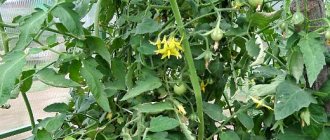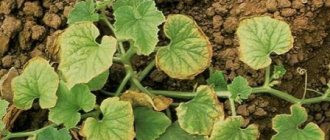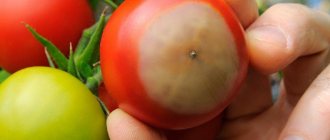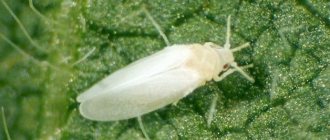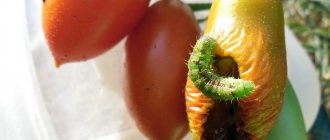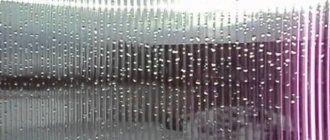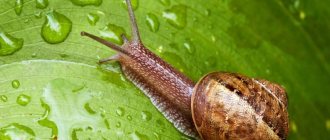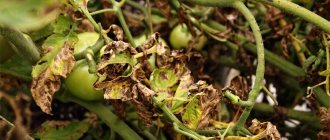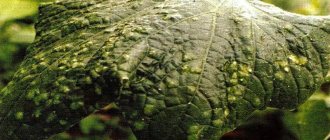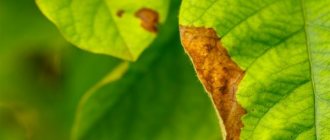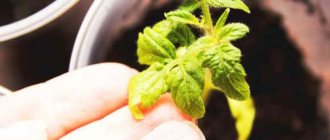Aphids are insect pests from the order Homoptera that feed on plant sap. A weakened plant specimen becomes susceptible to infectious and bacterial diseases. If no action is taken, aphids on peppers will cause the seedlings to gradually wither and die from lack of nutrients. Biological and chemical agents and traditional methods of control will help protect against the pest.
Types of aphids and why they are dangerous
Aphids on pepper seedlings are small insects that parasitize plants. There are at least 4,000 species in nature, about 1,000 of which can be found in the European part of Russia. Among all pests, aphids are especially dangerous because they have wings, fly from bush to bush, and have defense mechanisms against many insecticides. Settles on almost all fruit and berry crops and indoor flowers.
It is easier to get rid of aphids if they appeared not during flowering or planting seedlings, but on adult plants. Young bushes affected by this insect rarely produce a harvest, since there are no high-quality ovaries and further fruits. In addition, the larvae grow quickly, and the number of insects increases exponentially.
Bell pepper infects 2 types of aphids:
- Green . It grows in large colonies, mainly during the flowering period. A small green insect appears on seedlings in late spring and early summer, at which time the plant is in the active growth phase. During the summer months, one female gives birth to several offspring, which suck the juices from the green parts of the pepper. Infection of a plant is difficult to notice, since at first the aphids appear in small numbers and settle mainly in places where the leaves are attached to the stem. Signs of infection are improperly developing buds and shoots, curling of leaves, the appearance of a white coating, thinning of the leaf blade, weakening and deformation of the stem.
- Room or black . An insect whose body size does not exceed 0.3 mm is practically invisible to the eye. The color can be different, but bell peppers are mainly parasitized by black-colored insects. Settles on the underside of leaves and on the trunk. It feeds on the juice of young leaves and shoots, which are rich in amino acids and carbohydrates. In the front part of the aphid body there is a special proboscis that allows you to bite through the thick skin of leaves and extract juice. The strongest, succulent plants are affected first; the female lays her offspring on them for the winter. When pepper leaves are punctured, bacteriosis develops, causing rotting, and the growth and nutrition of the plant is disrupted. The bush dies even before fruiting begins.
This insect settles not only on peppers, but also on many crops in the garden. It can affect roses, cabbage, and tomatoes. In the early stages of infection, chemical treatment methods are used, which instantly kill all offspring. Before budding begins, more gentle methods are used that do not affect the growth rate and quality of future fruits.
What is dangerous for the plant?
The parasitic insect feeds on the sap of the plant, sucking out all the nutrients. In addition, aphids act as carriers of many phytoinfectious diseases. Colonies of this pest can completely destroy pepper beds and deprive the gardener of his harvest. During the process of damage, the cellular structure of the vegetable crop is disrupted, the plant stops growing and producing fruit ovaries. Another danger is the formation of honeydew, which in large quantities causes great damage to pepper. This sticky substance causes black mold to form, which affects the plant's photosynthesis.
See also: The proximity of peppers and cucumbers in a greenhouse: is it possible to grow them together?
Causes and signs of plant damage
Insect eggs overwinter under a layer of foliage, in tree bark. In the spring, the female hatches larvae, and the generation reproduces intensively. The second brood appears in the first month of summer. If the cold does not set in for a long time in the fall, then another offspring is possible.
Ants promote the growth of pests by feeding on sticky insect secretions.
The following types of aphids are dangerous for peppers: granular, black, mealy and indoor.
Causes of aphids:
- planting peppers in contaminated soil;
- high air temperature combined with high humidity;
- an adult aphid flew to a loggia or windowsill and laid eggs on the plant.
How to determine the presence of bugs by external signs:
- yellowing and curling of leaves, the appearance of shine on the leaf blade;
- the ovary does not have time to twist, the buds fall off;
- sticky mass on leaves and trunk;
- there are egg clutches on the lower part of the tops;
- deformation of shoots, the plant stops growing;
- Ants are running along the stems.
The pest is a carrier of infections dangerous to young pepper seedlings.
Signs of appearance
Aphids are one of the dangerous pests of cultivated plants. The bug is light green in color and small in size (up to 5 mm long), parasitizing on the inside of pepper leaves and its stems. Insects reproduce most quickly in warm conditions and high humidity (for example, in greenhouses).
The presence of a pest is indicated by the following signs:
- the leaves of pepper seedlings curl and turn yellow;
- the plant is very shiny, and its surface becomes sticky to the touch;
- a viscous liquid, which in its consistency resembles syrup, covers the entire surface of the pepper with a thin layer;
- the underside of the seedling leaves is strewn with egg clutches and small bugs.
Insect activity leads to the following adverse consequences:
- seedling growth slows down;
- plant productivity decreases;
- pepper does not survive transplantation well, and after it it is difficult to adapt;
- the plant dies if there are no protective measures.
Pest attacks do not go unnoticed. Seedlings do not restore growth and proper development well. And therefore, it is recommended to combat aphids on peppers in a timely manner so that the insects do not move onto healthy sprouts.
Folk remedies to combat aphids
Many gardeners prefer to use folk remedies for aphids. They are good both for processing plants in a greenhouse and in open ground.
Laundry soap
A soap solution made in the proportion of 5 g of laundry soap per 1 liter of water will help destroy aphids on peppers. It is infused for at least 5 hours, after which it is filtered and used for spraying bushes or wiping leaves. To achieve maximum effect, this treatment of pepper against aphids is carried out at least 3-4 times.
Ash
An infusion of ash will help remove aphids (2 cups of the product are diluted in a bucket of water and 100 g of soap solution is added). The mixture is ready for use after 24 hours.
A mixture of ash and tobacco dust is effective against aphids. 50 g of each component are mixed with 2 liters of water.
Spruce needles
What to do if aphids appear on peppers and eggplants. You can get rid of the pest using spruce essence, which is intended for use both indoors and outdoors. 500 g of pine needles are infused in 2 liters of water for 7 days. When used, 40 g of the resulting essence is diluted in 1 liter of water and sprayed on pepper seedlings. Infusions based on garlic and yarrow have similar properties.
Soda
Another folk recipe for aphids using soda. In 1 liter of water you need to dissolve 40 g of laundry soap and 1 tbsp. l. soda The solution does not need to be infused; it is immediately ready for use.
Mustard
Dry mustard (30 g) is brewed in 0.5 liters of water and infused for 3 days. Add enough liquid to the resulting solution so that the total volume reaches 10 liters.
Ammonia
No less popular is ammonia for aphids. It is effective due to the fact that it irritates the respiratory system, causing paralysis in insects. The product also affects the digestive system of insects, causing burns to the mucous membrane, convulsions and painful death.
To prepare the solution you will need 2 tbsp. l. ammonia, 1 tbsp. l. liquid soap (dishwashing detergent) and 10 liters of water. The prepared solution is used in a similar way.
Chemicals
Even a novice gardener can fight aphids on pepper seedlings with the help of modern insecticides. The following drugs are most effective in combating aphids:
- Spark. Quite a toxic insecticide. The solution diluted according to the instructions must be sprayed on the pepper. You can also use this treatment method for prevention.
- Dichlorvos . It is dangerous for inflorescences and leaves because it contains substances that leave burns and lead to the death of the plant.
- Fitosporin . A modern chemical repellent for aphids that has antibacterial and fungicidal effects. Protects not only from insect pests, but also from various diseases that they carry. Available in the form of suspension, powder and paste.
- Cortleys . Systemically affects parasites and their larvae. The treatment effect lasts 21 days, then spraying must be repeated. The concentrate is diluted in water.
- Intavir . Affects the nervous system of insects, as a result of which they die. Creates a protective film on the surface of plant tissues, which is poisonous to bugs. Available in the form of tablets and powder, which are diluted in water and used for spraying.
- Commander . Effectively fights many insects and larvae. The active substance is resistant to sunlight and washing off with water, so it is used in open ground.
- Copper sulfate . Available in the form of blue granules. First, a paste is prepared from them, which is then mixed well with a solution of water and potassium permanganate of a faint pink hue. It is used not only for spraying, it is used to treat the soil around the bushes.
- Aktara . Apply 5 g of powder per 1 liter of water. It is widely used to combat the Colorado potato beetle, but is also effective against aphids.
- Tanrek . Used in greenhouses and garden beds, it is able to overcome the barrier of plant tissues and accumulate in the soil.
Most insecticides today are absolutely safe for humans and animals that accidentally or intentionally eat the leaves and fruits of plants. However, when working with drugs, it is necessary to use protective equipment so that the active substances do not get on the mucous membranes and cause a burn.
Methods for controlling sap-sucking insects
A summer resident must know what to do when aphids appear. The choice of funds is large. It is necessary to correctly assess the degree of damage and choose the most optimal one.
Benefits of chemicals
Any chemical is effective. The insecticides included in the composition have a wide spectrum of action. They are able to quickly remove insects from peppers. Advantages of modern chemical preparations for aphids on peppers:
- begin to act on pests a few minutes after treatment;
- To completely destroy a pest colony, 2 treatments are enough;
- The recipe for preparing solutions is simple, given in the instructions for the drug;
- 3 weeks after spraying, the fruits can be eaten.
Safety of biological agents
The basis of the action of biological products is organic substances. They kill aphids but are not harmful to humans, pets or bees. Chemical preparations cannot be used during flowering, but biological ones can.
See also
The use of boric acid for spraying and processing peppers
Read
Biological agents can be used to control aphids at home. It is very comfortable. With their help, you can quickly get rid of aphids on pepper seedlings. These preparations can be sprayed on bushes during the fruiting period. After 5 days the fruits can be eaten.
Biological agents
You can also fight aphids in your home using biological methods, which include: Attracting birds that destroy the pest: tits, linnets, sparrows. The birds need to be provided with food and drink on the site, constantly maintaining the contents of the feeders until the birds destroy all the insects. Insects and aphids feed on them: ladybug, flower lady, lacewing.
How to get rid of aphids in a greenhouse
It is necessary to combat aphids on peppers in a greenhouse using the same means as in open beds. Spraying is carried out at any time immediately after pests are detected.
A bug on a pepper in a greenhouse can settle on the underside of the leaves. Therefore, for processing it is necessary to use a device with a flexible sprayer that covers all parts of the plant.
It takes time for all the insects to die. But if after 2 days there are still alive individuals, repeat the treatment.
Prevention of aphids
To prevent the appearance of aphids in the garden or greenhouse, follow the rules of agricultural technology when growing peppers. Preventative work begins with proper preparation of the soil for sowing seedlings. To do this, the soil mixture is frozen in the freezer or heated at high temperature in the oven. It is also possible to use disinfectant solutions, for example, potassium permanganate.
It may be interesting Why peppers do not grow well after being planted in a greenhouse: how to solve the problem Pepper “Pride of Russia”: a variety with an extended ripening periodThe best varieties of peppers for the Moscow region
Seedling containers are thoroughly washed and wiped with alcohol before filling them with soil. Before planting, the seeds are disinfected in a solution of potassium permanganate or treated with a solution of “Fitosporin”. All indoor plants and bouquets of flowers are removed from the room where the boxes with seedlings are located. They can be a source of aphid spread. To strengthen and develop immunity, seedlings are watered with growth stimulants.
After planting in a permanent place, the plants are regularly inspected. When the first signs of infection are detected, treatment is started immediately to prevent the spread of pests to neighboring plants.
Aphids are a dangerous insect that can destroy pepper plantings. Pest control will be effective with early detection of infected plants and correct assessment of the scale of insect spread. After treating the bushes with insecticides, adult individuals die within a day. For complete protection, apply several sprays every 7 days.
